Galaxy Z Fold 6 and Galaxy Z Flip 6 cameras — 5 biggest rumored upgrades
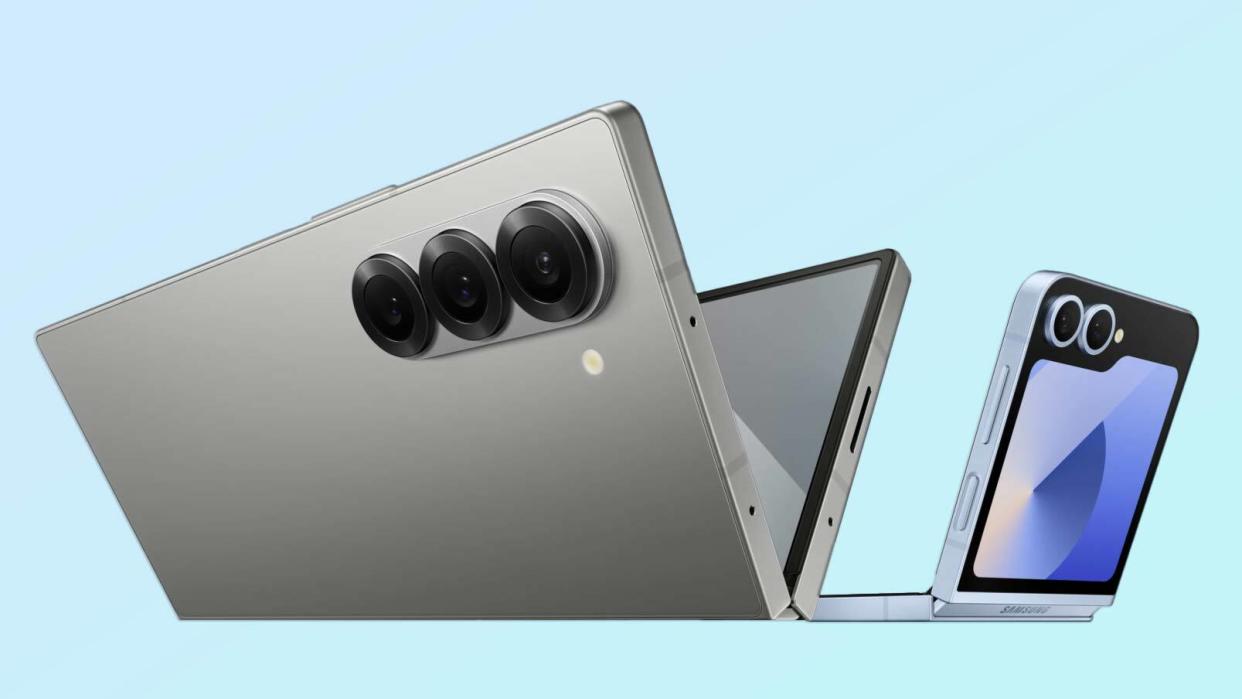
You're not necessarily turning to foldable phones for their cameras — rather, the appeal lies in the ability to use a larger display and fold up the phone into something more compact when you're done. Still, cameras are a key part of any phone, foldable or otherwise, so there's naturally some interest on what Samsung's planning for its upcoming Galaxy Z Fold 6 and Galaxy Z Flip 6 releases.
The answer? It depends on which phone you're asking about.
The Galaxy Z Fold saw major camera improvements two years ago with the release of the Galaxy Z Fold 4. As a result, any changes Samsung is expected to make to the Galaxy Z Fold 6 cameras will amount to fine-tuning at the most.
The story is different for the Galaxy Z Flip 6. For years, Samsung's been using the same camera module on its flip phone-style foldable. But with more competition from the likes of Motorola, the same-old, same-old isn't going to fly anymore.
Here's a round-up of the big camera changes that Samsung is rumored to be making with this year's foldable phones, ahead of the expected debuts of the Galaxy Z Fold 6 and Galaxy Z Flip 6 next month.
1. Galaxy Z Fold 6 cameras: Steady as it goes
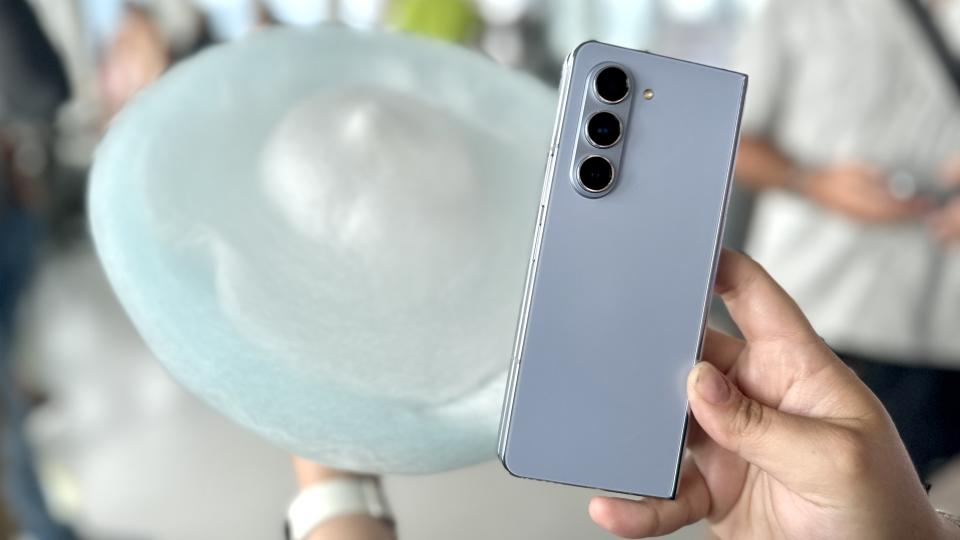
Early on in the Galaxy Z Fold 6 rumor cycle, it became clear Samsung wasn't planning big changes for the cameras on its more expensive foldable. Last fall, a leaker named Revegnus claimed in a since-deleted post on X that Samsung would use the same GN3 sensor found in the Galaxy Z Fold 5 for its upcoming foldable. Another leaker, Ice Universe, confirmed that the Z Fold 6's camera setup "is the same as Fold4 and Fold5, that’s for sure."
More recent leaked specs have only confirmed that. SmartPrix posted what it claims are the full specs for the Galaxy Z Fold 6, and they show the phone with a 50MP main camera, 12MP ultrawide camera and 10MP telephoto lens. These are the exact same specs as the Galaxy Z Fold 5's external cameras.
The front-facing cameras on the Galaxy Z Fold 6 — rumored to be a 10MP outer camera and 4MP interior selfie cam underneath the Z Fold's display — also match the Galaxy Z Fold 5.
2. Galaxy Z Fold 6 gets improved video capabilities
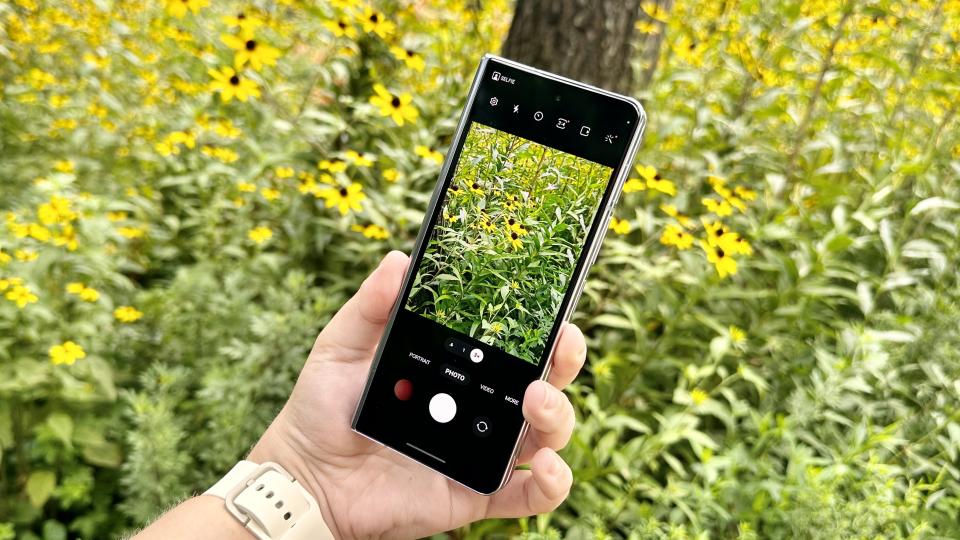
The hardware may not be changing in the Galaxy Z Fold 6's camera setup, but you may gain some new capabilities on the video front. That same specs report confirming no changes to the Galaxy Z Fold 6 cameras also claims that you'll be able to record slo-mo videos in 4k at 120 frames per second and full HD at 240 fps. While the Galaxy Z Fold 5 supports regular video recording at up to 8K, slow-motion video topped out at FHD.
3. A new camera housing for the Galaxy Z Fold 6
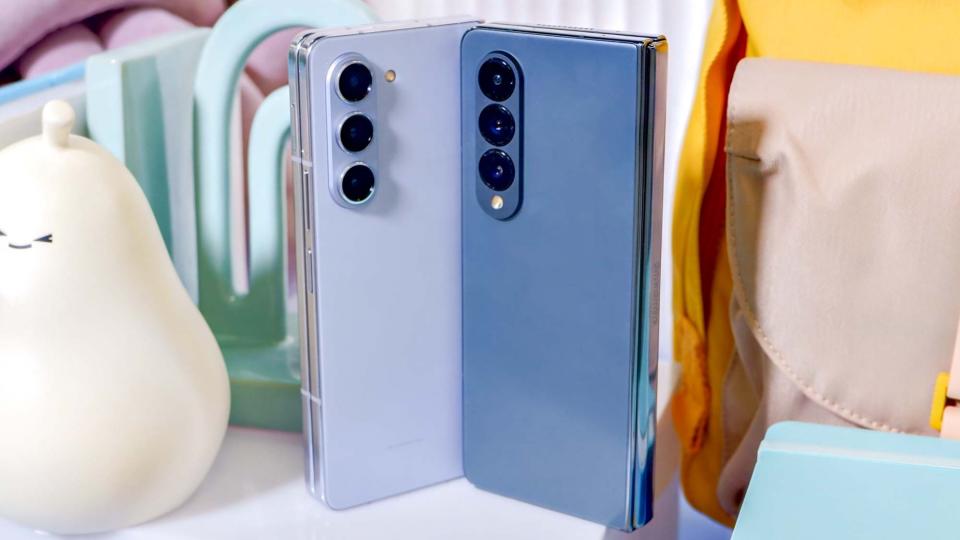
All right, this rumor won't exactly get people to line up in the streets for the Galaxy Z Fold 6, but it represents a change from the Galaxy Z Fold 5 — and an aesthetically pleasing one at that.
The Galaxy Z Fold 5 features a separate camera bump, with a raised area on the outside of the phone encompassing the three rear lenses. Ice Universe posts that the Galaxy Z Fold 6 is set to take a different approach, with a camera array that drops the separate bump and just has the lenses protruding slightly from the rear of the phone. In other words, the Galaxy Z Fold 6 would adopt the same look you'll find on the back of the Galaxy S24, where a stack of cameras stick out of the back of the phone.
It's a much better looking design in my opinion, and it also would make the Galaxy Z Fold 6 less prone to wobbling when you set the phone down on its back — a crucial change if you plan to do a lot of work on the 7.6-inch interior display and don't want to contend with the phone bouncing around as you tap on the screen.
With that said, Ice Universe has since posted leaked images of the Galaxy Z Fold 6 that still show a slight camera bump. So perhaps the change is more subtle than we're imagining.
4. Galaxy Z Flip 6: A big main camera improvement
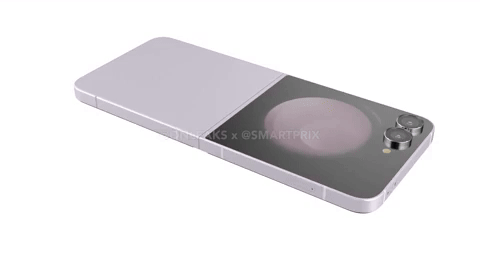
For the real big changes to cameras on Samsung's foldables, we need to turn to the Galaxy Z Fold 6. Since the original Flip, Samsung has always outfitted the phone with a pair of 12MP sensors to handle the main and ultrawide camera duties. That's apparently changing with the Galaxy Z Flip 6.
Specifically, the new version of Samsung's flip phone has been tipped to get a 50MP main sensor. Regulatory filings confirm as much, suggesting that you'll be able to take sharper, more detailed pictures with the Galaxy Z Flip 6.
It's more than just megapixels. While the Galaxy Z Flip 5 has optical image stabilization for its rear cameras, the Galaxy Z Flip 6 is expected to add electronic image stablization to the mix. That should mean steadier shots at night.
It's worth noting that the upgraded camera would give the Galaxy Z Flip 6 an edge over the current Motorola Razr+, which we rate as the better flip phone of the two. Even the midrange Motorola Razr (2023) has a beefier megapixel rating than the current Flip. It seems very clear Samsung wants to confront the stepped-up competition in the foldable phone space by tackling the cameras on its flip phone, long a weak spot on the Galaxy Z Flip series.
5. Galaxy AI-based photo features?
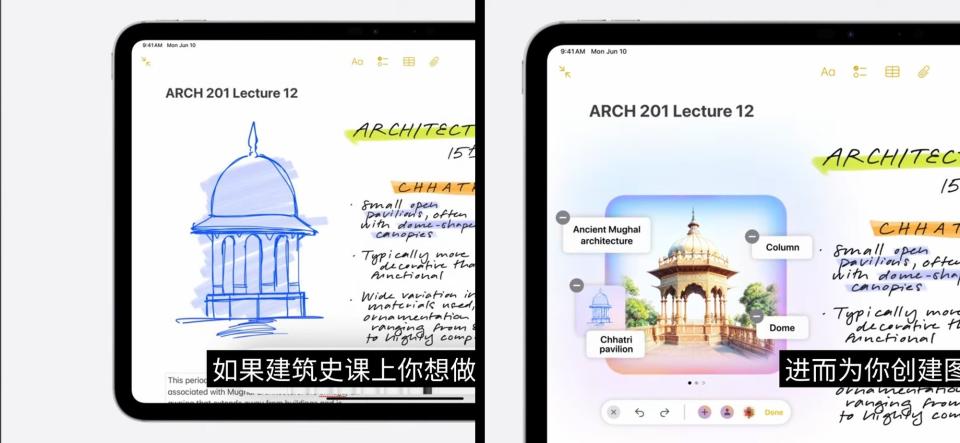
AI tools have become a major focus for Samsung this year, even to the point where the Galaxy AI capabilities introduced with the Galaxy S24 release have found their way to Samsung's current foldables via a software update.
It's believed Samsung has more Galaxy AI features in the works, including a few that might be tied to the cameras on the new Fold and Flip. One potential Galaxy AI feature apparently aimed at the Galaxy Z Note 6 will reportedly take sketches you draw on that phone's display — presumably with the included S Pen — and enhance them with generative AI. In case you're keeping score at home, the just-announced Apple Intelligence tools promise a similar feature in the Notes app of select iPhones and iPads.
If the updated Galaxy AI tools are going to use generative AI to enhance drawn images, it seems likely that the same approach could be applied to photos captured with the Galaxy Z Fold 6's cameras. Existing Galaxy AI features already let you edit images by resizing and moving around objects; they'll also suggest potential edits like removing reflections from an image.
